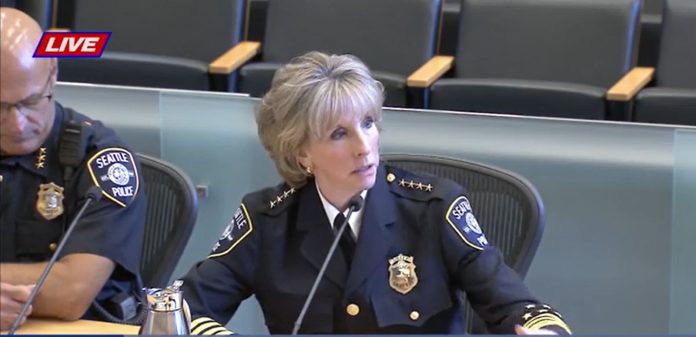
SPD’s chief operating officer sharply criticized former Police Chief Sue Rahr, email records obtained by The Urbanist show.
An email written by Seattle Police Department (SPD) Chief Operating Officer Brian Maxey shows that turmoil and division have marked the dysfunctional department as recently as mid-January of this year.
The email, addressed to Wayne Barnett, the executive director of the Seattle Ethics & Elections Commission, was obtained by The Urbanist via a public record request. Maxey wrote it only two weeks before new Police Chief Shon Barnes was scheduled to take over from interim Chief Sue Rahr.
He states that he wrote the email together with Rebecca Boatwright, who is SPD’s General Counsel and Executive Director of Analytics and Research. According to the email, they both feared retaliation from Rahr during the last two weeks of her tenure at SPD.
Rahr’s potential conflicts of interest
Maxey described several potential conflicts of interest initiated by Rahr during her eight months at SPD, including two that turned into executed contracts.
The first consists of two agreements with The Center for Police Culture, which was originally co-founded by Rahr. The City of Seattle signed a contract with the center to provide three three-day leadership courses for SPD in October, November, and December of 2024, for which the City agreed to pay $52,000. The City then signed an amendment with the center to add an additional nine cohorts for the entirety of 2025, to cost an additional $400,000. This amendment was signed by Maxey himself on January 24, only about a week after he sent the email to Barnett.
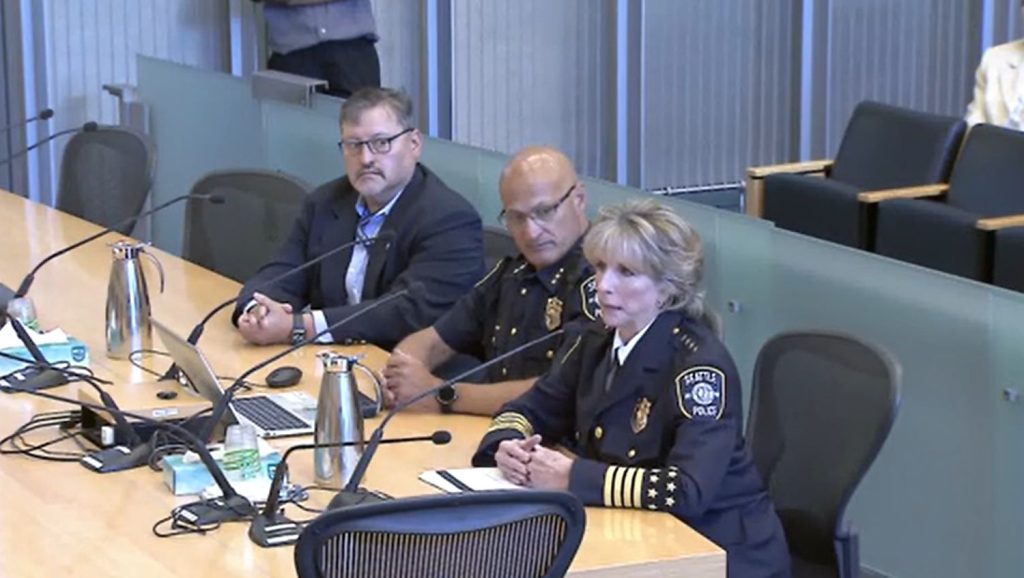
Maxey wrote that Rahr had mandated that SPD contract with the center. He further stated that she said she wanted to return to teach for the center after her time at SPD, and that Boatwright had told her she probably couldn’t due to City ethics rules.
However, The Center for Police Culture was originally founded as a 501(c)(3) nonprofit, and upon its dissolution, the name was repurposed by a private consulting company owned by one of the other founders. In a conversation with The Urbanist, Rahr said, “I think the leadership training SPD is contracting could be pivotal for changing the culture at SPD.”
The second consists of a contract with Meliora Public Safety Consulting, with whom Rahr has worked as a consultant, including for an organizational assessment for the Marin County Sheriff’s Office in 2023. SPD commissioned a patrol staffing study, including a six-year computer aided dispatch system data analysis to provide insights about workload in the department. The price tag for the study, to be completed by the end of 2025, is $94,000.
Rahr told The Urbanist she contracted with this company because she was familiar with them and their consultants and was confident in their expertise.
Maxey says he raised concerns about these conflicts of interest with Natalie Walton-Anderson, the director of public safety at the Mayor’s Office, and that he believed she and Barnett had vetted the above contracts.
Callie Craighead, a spokesperson for the Mayor’s Office, confirmed this, saying, “Before contracts were executed, Wayne Barnett of the Seattle Ethics and Elections Commission (SEEC) provided approval that there were no conflicts of interest or concerns.”
In a letter to the city council at the end of December, Mayor Bruce Harrell said Rahr had agreed to continue to consult with SPD after Barnes’s arrival in the areas of recruitment, retention, and improvements suggested by the 30×30 Initiative, which aims to increase the number of women officers in the force to 30% by 2030. At last report, the department was 15% women, and the trendline has yet to turn.
A divided department
Maxey’s email paints a picture of a department in which the command staff was unable to work well together and in which some members of senior command staff were actively trying to undermine their temporary Chief. He makes several claims about Rahr in this email to another City department head that illustrate a schism in SPD leadership.
Maxey complains that Rahr decided to move all civilian command staff away from the eighth floor where she was located and that he and Boatwright were being cut off from operational decision-making for the department. He says that Rahr directly expressed her disappointment in his behavior of going around her and taking concerns directly to the Mayor’s Office.
Maxey also said Rahr criticized Boatwright for sending written notifications to other relevant departments informing them of “factually inaccurate information in a recent disciplinary decision that could potentially expose the City to high liability.”
In its 2025 budget, the City increased the annual appropriation to “Judgment & Claims,” which pays for the City’s lawsuits, by $4.28 million. It also added a one-time sum of $13.6 million to judgment and claims to “cover excess risks.” In 2026, the proposed budget increases the same item by $8.1 million, leading to a total increased investment of $26 million over the two years. In light of the increasing expense to the City of resolving lawsuits as well as its generally difficult budget position, this accusation is very serious.
Maxey claimed an assistant chief was demoted on January 15, only two weeks before Rahr was due to leave. He claimed another assistant chief had gone on family and medical leave “due to the chaos.”
That SPD’s COO would feel it necessary to make these claims in writing to another department while these changes were taking place shows just how convoluted the inner culture of SPD has been.
About these staffing changes, Rahr said, “Toward the end of my tenure, I made changes to the leadership ranks to continue to build a healthy culture, and the work is ongoing.”
In December, Rahr promoted Yvonne Underwood to be acting deputy chief and Captain Lori Aagard to be the Acting Assistant Chief over Professional Standards. This decision could have been seen by some as a blow to the “good old boys” network documented within SPD by 2023’s 30×30 report.
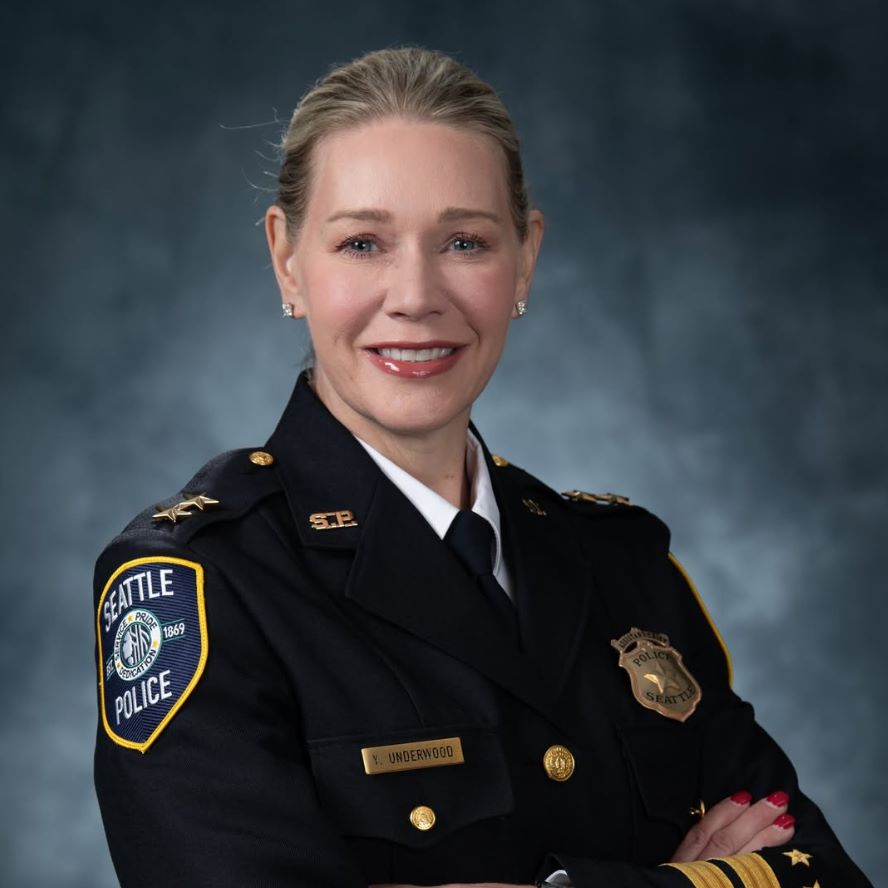
“We are grateful for the service of Interim Chief Rahr, who brought leadership and stability to the department at a difficult time, advancing a needed institutional culture change,” Craighead said.
A weaponized complaint system
Five lawsuits have been filed against the City by SPD employees since 2023, most recently from Lieutenant John O’Neil. O’Neil’s lawsuit alleges that certain SPD employees were weaponizing both Equal Employment Opportunity (EEO) investigations and Office of Police Accountability (OPA) investigations in order to harass him.
His suit states: “On March 12, 2024, O’Neil contacted individuals from OPA, SPD HR, and SPD to raise complaints of a “targeted and colluded effort” by SPD members to harass, bully, intimidate, and have him moved or terminated because of his race and gender.” O’Neil is Black.
Four women SPD officers had filed a lawsuit naming O’Neil in 2024, accusing him of sexual harassment and retaliation.
DivestSPD reported that those four women had filed eight OPA complaints and several EEO complaints against O’Neil. All the EEO complaints occurred during Adrian Diaz’s short tenure as police chief; during O’Neil’s first 18 years at SPD, he received very few complaints.
An independent report commissioned by Harrell to investigate claims of gender discrimination and sexual harassment within SPD found that the number of EEO complaints in 2024 was on track by the end of September to more than double compared to the previous year. “Concerns were expressed that an increased volume of internal complaints is the ‘new normal,’” the report stated, referencing unnamed SPD employees.
Rahr began as interim SPD chief on May 30, 2024, partway through this period of increased EEO complaints.
The report also said that investigators “noticed a pattern concerning a small group of individuals who appeared to be filing multiple complaints against each other related to systemic concerns of discrimination and harassment based on race or gender/sex.”
The report further observed that “because a larger directive does not exist to address complaint patterns or to investigate systemic concerns, discrimination or harassment may go unobserved and unaddressed.”
The report recommended expanding the OPA’s jurisdiction to handle investigation and management of EEO complaints. However, because the Seattle Police Officers Guild (SPOG) contract only allows the OPA to have four civilian investigators and three civilian supervisors, further bargaining would probably need to occur to allow the agency to staff up appropriately to handle the increased workload.
In addition, the OPA complaint process may also be being misused. In addition to the eight OPA complaints against O’Neil discussed above, PubliCola reported that Diaz was the subject of 52 OPA complaints from September 2022 to September 2024, more than half of which OPA closed after deciding they didn’t even merit investigation.
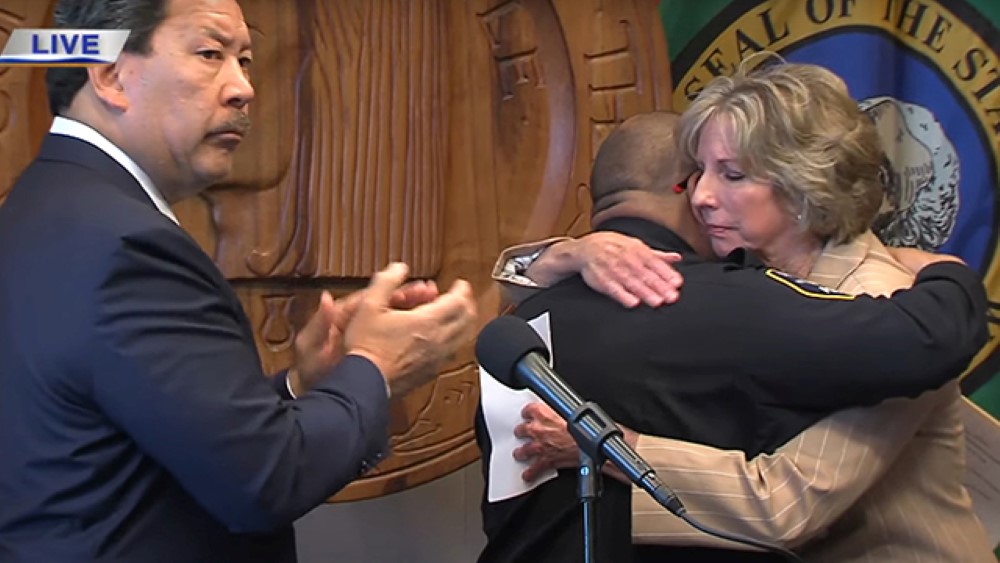
Meanwhile, the Office of the Inspector General (OIG) is having problems of its own. Among other responsibilities, the agency is tasked with oversight of the OPA and was deeply involved in the recent investigation into allegations that Diaz was having an affair with his chief of staff Jamie Tompkins and was when he hired her. The findings of the investigation led to Harrell firing Diaz in December.
In mid-January, a former OIG employee, Lacey Gray, filed a tort claim for damages against the City in mid-January after being fired by Inspector General Lisa Judge in November. Gray claims her firing was in retaliation for raising concerns that the OIG might have illegally handled and distributed records related to the investigation of Diaz. Real Change reported that Gray’s unemployment claim was approved in mid-December, meaning the Washington State Employment Security Department didn’t believe Gray had been fired for cause. She is now asking the City for $5 million.
Gray isn’t the first OIG employee to file a formal ethics complaint against the office. A senior OIG auditor resigned in 2021, and one of the allegations in her complaint stated that the office exhibited a “pattern of concealing the truth and avoiding public disclosure request requirements.”
That two OIG employees in the course of four years would raise concerns about the office’s handling of public disclosure requests suggests a potential pattern. SPD has also had repeated problems with their public disclosure process.
Charting a path forward
New SPD Chief Shon Barnes has inherited a department mired in dysfunctional leadership that doesn’t appear to have been fully handled during Rahr’s short tenure. With a weaponized complaint system, a divided command staff, and a seemingly pervasive fear of retaliation, SPD could well be a department that is simply difficult to lead, which perhaps explains the rapid turnover of chiefs in recent years. This kind of toxic culture could also contribute to low morale.
While trust appears to be low within the department, public trust of SPD has never fully recovered from the department’s heavy-handed tactics during the George Floyd protests of 2020. It took another large blow in 2023 when then-SPD Officer Daniel Auderer was captured on body-worn video mocking the death of student Jaahnavi Kandula.
Most recently, in mid-March an SPD officer shot and killed a man who seemed to be having a behavioral health crisis in the Southwest Precinct’s parking lot. The man was carrying a small knife, and he was confronted by what appears on the video to be at least five officers. When the man increased his pace towards them, an officer armed with a 40-millimeter projectile launcher fired a round intended to stun, but a second later, another officer fired a gun and killed the man. Another officer present was armed with a taser that was never used.
SPD faced several controversial cases when an officer shot and killed someone with a knife between 2017 and 2021.
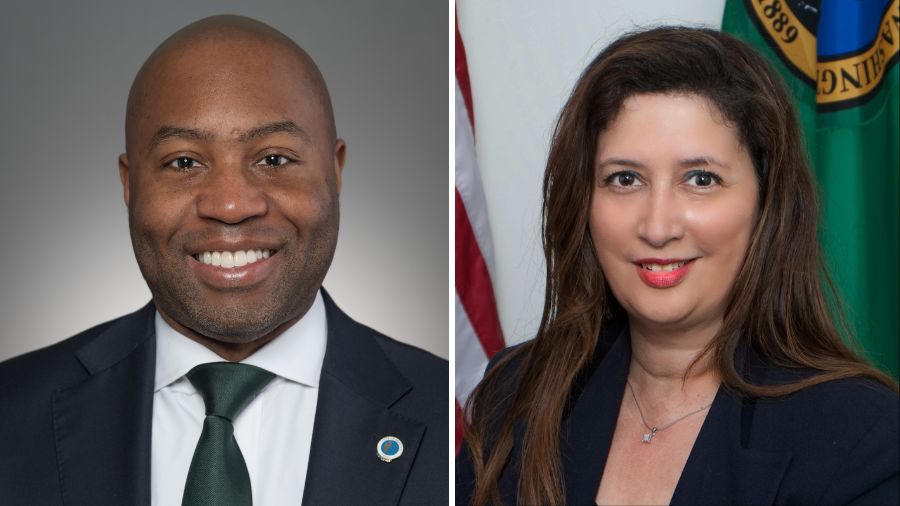
The increasing visibility of the broken nature of Seattle’s accountability system is not helping to rectify matters. In addition to the problems discussed above, former OPA director Gino Betts abruptly resigned in November amidst accusations of mishandling claims against Diaz and complaints about his workplace conduct. Meanwhile, Community Police Commission (CPC) director Cali Ellis went on leave last summer, and the agency is still running without a permanent replacement.
Meanwhile, SPD is slated to spend nearly half a million dollars in 2025 on contracts Rahr initiated with reform-focused companies. And the department continues to state its desire to recruit women officers in the wake of a 2023 30×30 report that documents pervasive sexual harassment and gender discrimination experienced by its women police officers.
The question remains whether the Mayor, City Council, and new Chief will take meaningful action to address the pervasive problems plaguing the department and its accountability mechanisms.
Amy Sundberg is the publisher of Notes from the Emerald City, a weekly newsletter on Seattle politics and policy with a particular focus on public safety, police accountability, and the criminal legal system. She also writes science fiction, fantasy, and horror novels. She is particularly fond of Seattle’s parks, where she can often be found walking her little dog.


